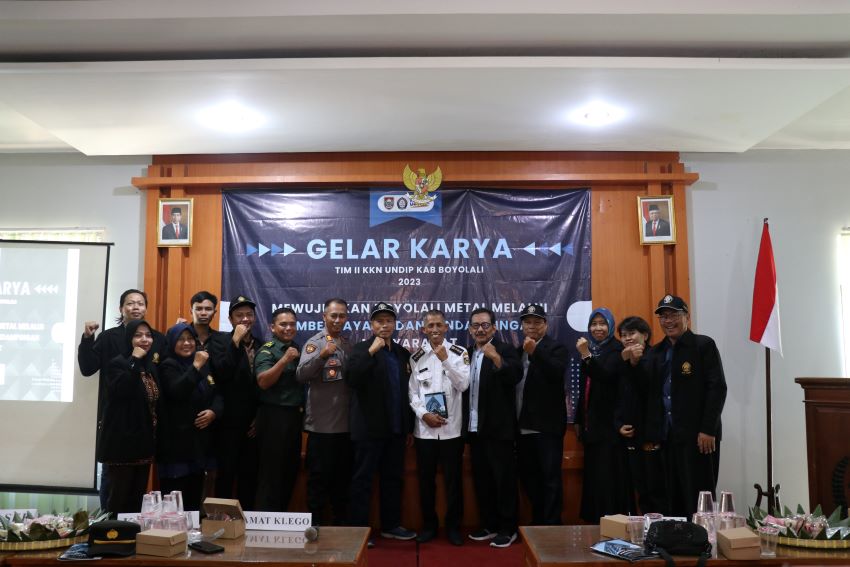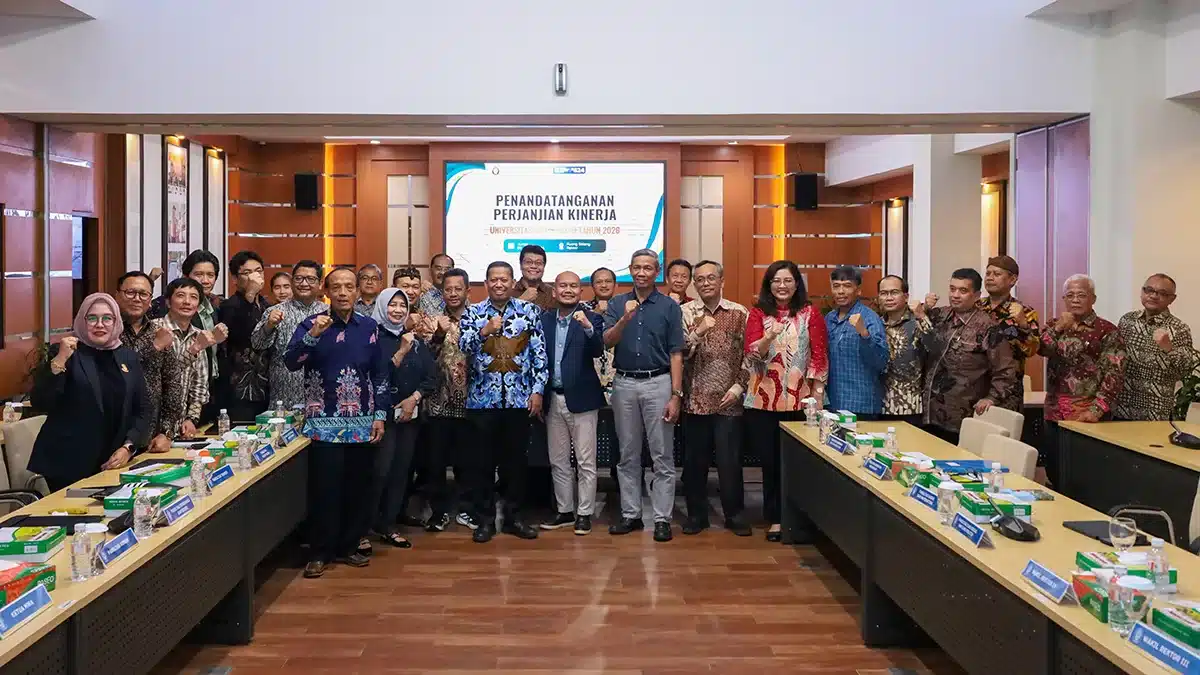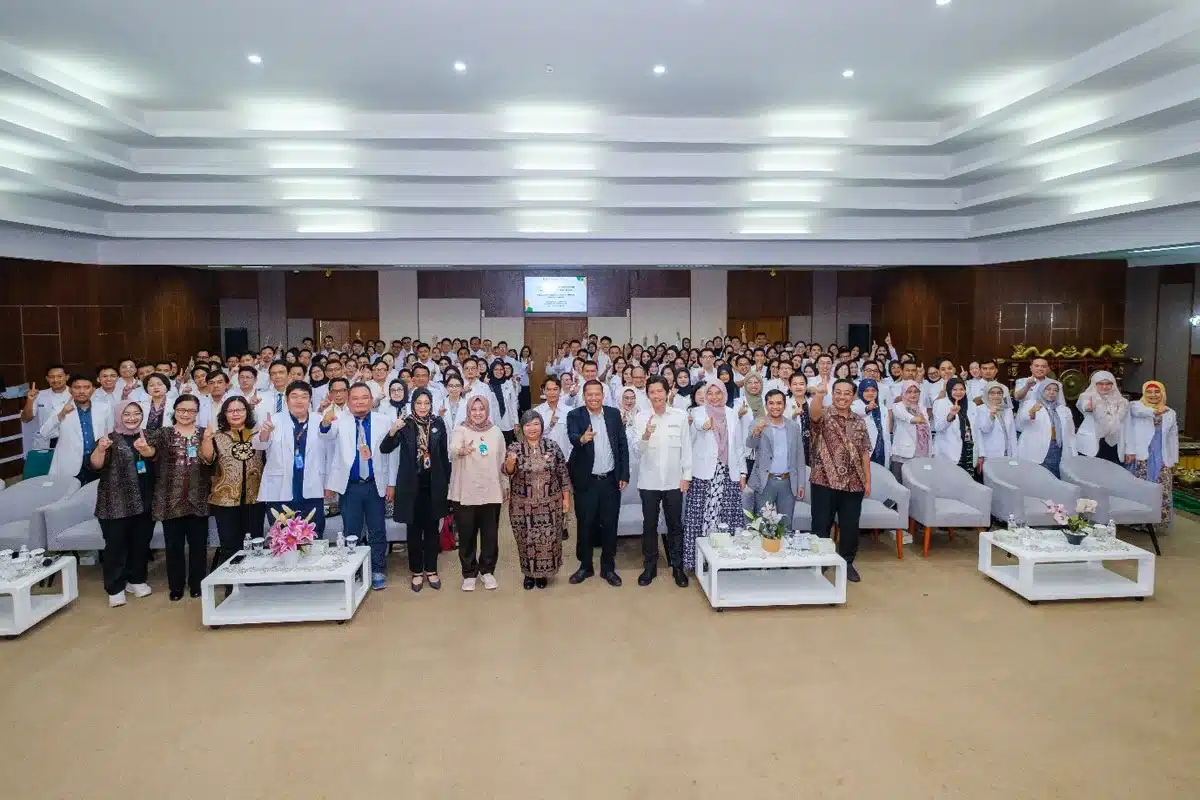“We thank you for the good collaboration between Diponegoro University and the Boyolali Regency government in education through Community Service (KKN) Lectures. KKN Undip students and community elements carry out the Community Service work program to help realize Boyolali Metal: Stepping Together, Organizing Together, Totally and Continuously Improving the Quality of Education. Suppose there are errors in behavior and words that are intentional or unintentional, we apologize for the mistake,” said Agus Trianto, S.T., M.Sc., Ph.D., as Deputy Dean I of the Faculty of Fisheries and Marine Sciences, Diponegoro University in the event University leadership working visit to KKN Team II Undip area in Klego District, Boyolali Regency, Wednesday (9/8).
 The Community Service Undip students in the Boyolali Regency held an expo. One of the exhibits on display was lime leaf extract biopesticide. Muhamad Nur Solakhudin, a Biotechnology Undip student, took the initiative to use the potential of lime leaves as a biopesticide to deal with insect pests. In Ngablak Village, lime is a plant that is relatively easy to find but is rarely used. Lime contains secondary metabolite compounds that can be used as antimicrobials, antifungals, biopesticides, and others, as well as an alternative to controlling insect pests in plants. In Ngablak Village, Wonosamodro District, there are various types of plants in the agricultural and plantation sectors that are attacked by pests. Many of the plants in the Nutrition Garden that are cared for daily are also attacked by pests.
The Community Service Undip students in the Boyolali Regency held an expo. One of the exhibits on display was lime leaf extract biopesticide. Muhamad Nur Solakhudin, a Biotechnology Undip student, took the initiative to use the potential of lime leaves as a biopesticide to deal with insect pests. In Ngablak Village, lime is a plant that is relatively easy to find but is rarely used. Lime contains secondary metabolite compounds that can be used as antimicrobials, antifungals, biopesticides, and others, as well as an alternative to controlling insect pests in plants. In Ngablak Village, Wonosamodro District, there are various types of plants in the agricultural and plantation sectors that are attacked by pests. Many of the plants in the Nutrition Garden that are cared for daily are also attacked by pests.
Solakhudin said that apart from lime leaves, biopesticide could be made using other plants, such as lime leaves, kaffir lime leaves, lemongrass, and eucalyptus leaves. Many studies have been conducted to test the effectiveness of Citrus Leaf Extract Biopesticides in overcoming insect pests. The most optimal result is to kill insect pests such as caterpillars, grasshoppers, fleas, and fruit flies. Biopesticides are expected to reduce the use of chemical pesticides, which have side effects on the environment and humans.
“Chemical pesticides are considered the most practical pest control agents, easy to obtain and work with, and results can be seen quickly. Even though its use often causes problems such as environmental pollution and poisoning of humans and pets, and can lead to resistance and resurgence of insect pests. The alternative that can be done is to utilize plants that have the potential to become biopesticide preparations,” he said. (LW-Public Relations)









